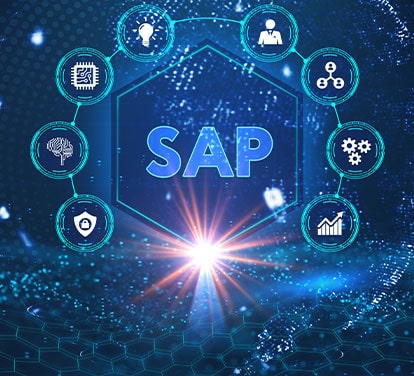On a busy weekend I got a phone call from a college friend who was trying to reach me almost after ten years. Over the conversation, he told me that he is currently working as CFO in SMB having a great future. Everything is great on the family front. In-office he is having additional responsibility for IT, mainly to take care of ERP cloud implementation. He accepted the additional responsibility as it came with a handsome pay package, but this new responsibility is not giving him enough time for recreation. An enthusiastic trekker was upset as he could not come out of his office routine for the last six months. He wanted to share his concerns and see if I can help him to deal with the situation.
I told him not to tell me anything, let me guess top five things that bother you.
- As a CFO you are worried about implementation project budget. Budget status is red, and management need to add more funds to complete the project. You have reached to a point of no return. Being a project sponsor, every time you need to go to top management and ask for more money.
- Project tasks and activities are not going as per plans, it is taking more time to complete the task than what was anticipated while planning (and budgeting). There is backlog and you are missing major milestones.
- Business user moral is low as you are chasing them to complete the task per plan. You are asking them to spend extra hours at office. They are not sure what value is getting added with the tasks those are asked to be completed. Some of them feel this ERP system is not adding value to day to day business activity or even it will increase their work and make job difficult for them.
- There are constant arguments going on in implementation room between consultant and users and both parties escalating against each other.
- Key users feel insecure as they will not be able to perform their job efficiently with the new system. Some of them feels ERP system will take their job away. In casual conversations users express their feelings and overall there is negativity about ERP Cloud implementation project.
When I asked him, how far is it true in his case?
I could here a big surprise in his response “How did you know this all! Do you know someone from my organization? You know everything what I am going through.”
I asked him few questions. Our Q&A was somewhat like this;
Q. Currently, are you using legacy software and would like to upgrade to ERP as you believe your existing system is not scalable to your growth needs?
A. Yes, Current legacy financial software can not be scaled to global business scenario and cannot support growth.
Q. Key business users are working with existing system for more than five years and is there resistance to change? rather they like this system too much?
A. Yes, most of them are using the system since we implemented this 8 years ago and most of them are fond of it. Some of them feel insecure about their job with this change.
Q. Do you have a paper-based decision-making process and for every decision, you print a report which is customized to suit the need?
A. Yes that is right. We have some reports created with users’ name. We have John’s report and Bill’s report too. Business feels they cannot function without these reports.
Q. Do you have a long list of custom reports to be built which are not available in new ERP?
A. Yes, we have 50 – 60 custom reports required by users.
From the conversation it was clear that they are unaware of how Multi tenancy Cloud ERP system works (rather don’t want to know) and that was the root cause of the issue. It happens with most first encounters with ERP. We decided to meet the next day and during the meeting, we have discussed below 5-point program to turnaround the project to back to Green.
-
Educate the users about the benefits they will be getting with the Oracle Cloud application. Some of the benefits may not be impacting to the end-user but it makes sense to know them to appreciate the system as a whole and then start using the system.
- Quick provisioning and rapid implementation ensure reduced time to benefit. Once you subscribe to the application (or its components at later stage) same can be provisioned in few hours and can be used immediately.
- Multi tenant application is shared among users, it is complete and ready to use for standard business processes. If users are oriented in early stage of implementation to adopt embedded business flows, then it can be done quickly with low cost of implementation.
- It comes with the highest degree of scalability (by geography, languages, data volume) and integration possibilities.
- Quarterly upgrades and new releases ensure your application is latest with all new features. No need for deliberate upgrades.
- Ease of reporting using powerful search and export utility, online real-time reporting using Oracle Transactional Business Intelligence (OTBI) and Financial Reporting Studio (FRS)
- Do not compare it with legacy application on the basis on number clicks, forms and fields but to take holistic view and measure benefits based on use of industry best practices, scalability to global business needs, Data and information security etc. Do not ask/ look for exact same flow or feature in legacy application. There are thousands of businesses already using the Oracle Cloud ERP application for their day to day business and compliance.
- Re-engineer the physical business process to tune with standard application offerings. Use standard reports to the extend possible. For ad-hoc requirements create and use your own OTBI reports and analysis.
- Quarterly upgrade may impact your customization so avoid major customizations. It may become maintenance overhead for you.
- Finally, listen to the consulting/ implementation partner. They are with multiple implementation experience and have 360-degree view of the application, implementation. They can help you in quality implementation with quick and easy implementation
Last word of advice for all my friends is, if you are interested in Oracle Cloud application then download our Cloud 360 E-book. Well begin is half done !













